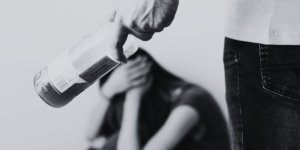Regulation & Licensing
As with tobacco, evidence shows that harm reduction at a population level relies on effective regulation.
Alcohol not only harms health but is a cause of anti-social behaviour and crime in communities and is a major drain on police, accident and emergency departments and paramedic crews.
93% of regional ambulance staff say dealing with intoxicated patients wastes valuable capacity and places avoidable demand on time and resources.
Balance works to champion the role of health and community safety in licensing
We work with regulatory partners across the region to advocate for the introduction of laws which would restrict alcohol marketing and availability and reduce affordability.
We work with partners locally and nationally to promote the importance of public health involvement and evidence in decisions relating to the Licensing Act.
We ensure the region has a voice on key national policies relating to alcohol regulation by responding to consultations with evidence-based submissions.
Balance also engages with relevant national and regional partners on alcohol regulation including the police, His Majesty’s Revenue and Customs, Home Office and His Majesty’s Treasury.
We also support local government in maintaining compliance with key alcohol regulations including licensing and age of sale laws
Watch our report with North East Ambulance Service:
Supporting an Alcohol Free Childhood through licensing

Chief Medical Officer guidance advises an alcohol free childhood is the healthiest and safest option, and if children do drink it should not be before the age of at least 15.
Local authorities and police across our region are engaged in age of sale work to support community safety – however under age drinking and supply undermines this and puts children’s safety and their health at risk.
Balance in collaboration with public health and licensing colleagues has developed a series of resources for local partners engaged in licencing to support the vision of an alcohol free childhood.
- Alcohol Free Childhood overview to the toolkit
- Briefing on how licensing can support an Alcohol Free Childhood
- 5 key recommendations
- Powerpoint for elected members and colleagues
Alcohol and domestic violence

“Alcohol consumption, especially at harmful and hazardous levels, is a major contributor to the occurrence of intimate partner violence and links between the two are manifold.” World Health Organisation
Alcohol alone is not a cause of domestic abuse, and is never an excuse. There are, however, many ways in which alcohol and domestic abuse are related.
The relationship between alcohol and domestic violence is complex. Research suggests between 25-50% of perpetrators of domestic abuse have been drinking at the time of the assault.
Read the Alcohol Health Alliance’s briefing on domestic violence – AHA Domestic Violence Briefing_Feb 2020
Links to support and advice if you or someone you know is suffering from domestic abuse https://www.nhs.uk/live-well/getting-help-for-domestic-violence/
